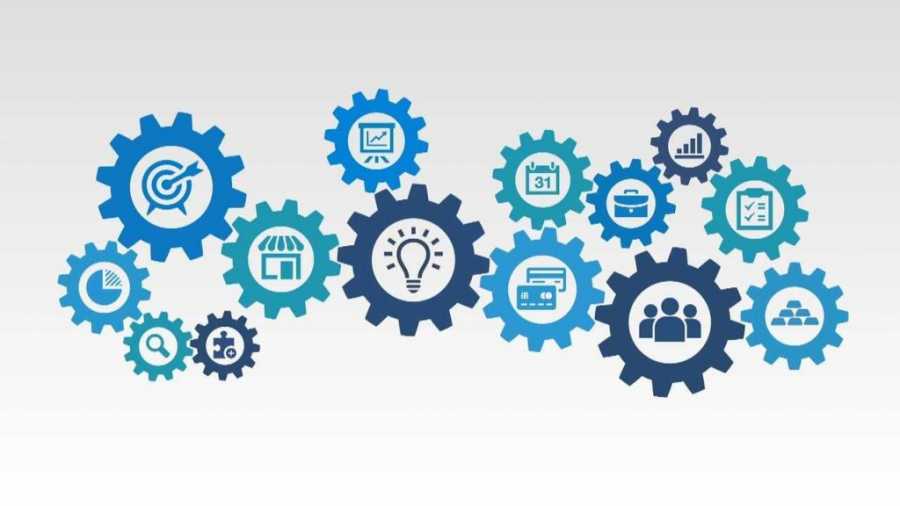We usually find the world of finance very difficult and frustrating. Because we tend to think that it is filled with complex terms and concepts. However, it is a misconception because financial literacy is well within your reach and can be understood with some discipline.

The Organization for Economic Co-operation and Development (OECD) cited a survey conducted in Canada. Consequently, they found choosing the right investment for retirement was more stressful than a visit to the dentist.
According to a global survey, India is home to almost 20% of the world’s population. However, 76% of its adult population is not even aware of the basic financial concepts.
A. What is Financial Literacy?
Definition of Financial Literacy by the National Financial Educators Council:
Possessing the skills and knowledge on financial matters to confidently take effective action that best fulfills an individual’s personal, family, and global community goals.
In layman’s terms, it is knowing how to avoid debt, balance timely budget, save & invest the money to be financially secure and consequently create wealth for one’s life.
If you’d like to learn more about the wealth you can read our article on What is Wealth.
Financial literacy is the ability to understand the four fundamental financial pillars: Debt, Budgeting, Saving, and Investing.

1. Debt
Debt is the money you borrow and spend. It can be good as well as bad.
Good Debt – If borrowed money is spent on absolutely necessary things; such as on building your home or on your education.
Bad Debt – If borrowed money is spent on unnecessary things; such as expensive buying, dining at expensive hotels, or living an extravagant lavish lifestyle.
First lesson – Understand the difference between good debt and bad debt and thus, avoid bad debt as far as possible.
2. Budgeting
Budgeting is a skill of managing your money while understanding where your money goes every month. The main rule of the budget is simple that total income should always be greater than total expenditure.
Second lesson – Budgeting your living is an important step towards your financial independence.
3. Saving
Money can be saved only when expenditure is less than your income. That saving can further be utilized on important things. You can pay off existing loans, spend on your family’s education or also save for retirement.
Not only the savings can yield good interest when put in the bank account but can also grow over time. You should also look for ways to reduce your tax liability to increase your savings.
Third lesson – Money saved is money earned.
4. Investing
Investing is all about creating money from money and growing the wealth you need to enjoy a financially secure future.
It’s about putting your money into something that will bring you profit over time. Such as investing money in the stock market, real estate, mutual funds, and government securities & bonds, etc.
Fourth lesson – Idle cash is trash so make it move and build your passive income.
Summarizing Financial Literacy in bullets points:
- Understanding of basic financial concepts to make sound financial decisions.
- Knowing how to make, spend, save and invest money.
- Knowing what debt, budget, saving & investing really means.
- Gathering appropriate knowledge and being competent in how to deal with money.
- Progressing towards financial stability and ultimately to financial freedom.
- Knowing the difference between living from paycheck to paycheck; being able to afford the things you want and need.
- Knowing real estate before actual buying, as your home could probably be the biggest purchase you’ll ever make.
B. Why is Financial Literacy important?

10 reasons why Financial Literacy is important –
1. Enables you to understand basic financial concepts
Financial literacy clears financial concepts such as credit scores, compound interest, financial planning, and debt management. It enhances financial knowledge and develops skill sets required for achieving financial growth and teaches management of money.
2. Helps you in making good financial decisions
Financial literacy not only helps in making good financial decisions about investing, saving, education, etc. But also enables us to understand not to waste our money on unwanted things; such as expensive electronic items, clothes, cars, and other things.
3. Aids you to be debt-free
If you are financially literate, you can determine how much loan we can actually afford to pay. Because acquiring too much debt might result in bankruptcy, defaults, etc.
4. Secures your retirement
Having good command on financial literacy can lead you to save a good amount of money. Also, it can help you to create enough income to enjoy a happy retirement.
5. Enables you to build wealth
Financial literacy teaches you the difference between assets and liabilities. It helps you in achieving financial freedom. It also teaches you to invest in stocks/real estate/funds, etc. By which you can create multiple income streams besides your salary which ultimately builds your wealth.

6. Enables you to afford things you really want in life
“I wish I had that car”, you think and say to yourself. But that wish can become your reality if you taught yourself financial literacy. It can provide you with enough funds to afford that wish/dream. You can also achieve your direly wanted goal and live without money-stress.
7. Protects you in emergency
We wish that emergency never comes upon you. However if it comes, you must be ready to protect yourself and your family. Because we might need huge amount of money to survive monetary or emotional crisis. In times like that, a financially literate person can save himself.
8. Helps in Country’s economy growth
The more you invest money in stocks, the more money goes into the market, which ultimately helps companies to expand. This means good employment rate and better contribution to the nation’s economy.
9. Allows us to help the needy
You can only help someone when you have something in your pocket to give. If you are financially literate, you tend to spend your money wisely. Consequently, you save enough to donate to someone in dire need of help. Trust us, helping others will definitely give you a sense of fulfillment.
10. Enables you to pass on financial literacy knowledge to others
A financial literate can help understand their family/kids as well as others about financial literacy. He/she can teach them how to budget and save for their better future. Eventually, they can be financially independent and street-smart.
C. How can you teach yourself Financial Literacy?

Here are 7 ways by which you can learn Financial Literacy –
1. Read financial literacy books
There are several books that cover the concepts of financial literacy and here is the list of a few:
a. Retire Before Mom and Dad by Rob Berger
b. The Millionaire Next Door by Thomas J. Stanley
c. The Total Money Makeover by Dave Ramsey
d. I Will Teach You to be Rich by Ramit Sethi
e. The Simple Path to Wealth by JL Collins
You can visit our article Top 20 books on Personal Finance to know more about the books.
2. Take financial courses
Studies show that high school students who take a mandated personal finance course go on to make better financial decisions. You can take a course on Next Gen Personal Finance, Econedlink or/and Alison financial courses to get on with financial basics.
3. Stay around finance literate people
A common saying is that you are an average of five people you daily sit with. Therefore, surround yourself with people who are good at personal finance and have a grasp on financial literacy.
4. Follow successful people and inculcate their good habits
It is said that if you have a teeth problem then go to a doctor, not to an engineer. The same applies to being successful and rich in your life. Follow a person who has already been successful in his life. Because following rich can help you build good habits and follow their paths to prosperity.
Read our article on the Top 50 habits of Billionaires to see what they exactly do.
5. Listen to money podcast & watch wealth-related videos
Many prefer to read. But you can also choose to listen and watch wealth-related video content. Because this will help you to retain more information for a long time.
6. Follow our website www.wealthdrift.com
At WealthDrift you would find good finance-related articles and resources to visit. Read and share your learnings/thoughts in our comment section.
7. Be aware
You can learn financial literacy by being aware of your surroundings; such as banking policies, government rules, etc. You can also read newspaper and watch news channels (business section) to increase your financial awareness.

Financial literacy holds the charisma to change the life of an individual. Because it helps you to maximize your money to live the life you want.
If you are living paycheck to paycheck and do not have enough savings to fall back on, then it is your time to be financially literate. Knowing what financial literacy is and why it’s so important will definitely improve your life.
If you liked this article, please do not hold yourself to share thoughts in the comment box below–





